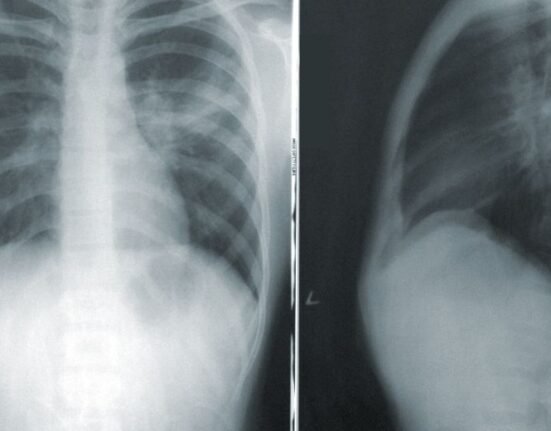HQ Team
March 6, 2024: A recent study published in Radiology, a journal of the Radiological Society of North America (RSNA) sheds light on the effectiveness of coronary artery calcium scoring with CT in identifying low-risk patients experiencing stable chest pain.
The research, conducted by Federico Biavati and colleagues, suggests that individuals with a coronary artery calcium score of zero exhibit a significantly low risk of major adverse cardiovascular events.
Coronary artery calcium scoring with CT was developed to noninvasively measure the amount of calcium in the arteries of the heart. Higher scores are linked with atherosclerosis, a buildup of plaque in the arteries. A score of 1 to 399 suggests a moderate amount of plaque, while 400 or higher indicates a large plaque burden.
“Coronary artery calcium is a strong and independent predictor of cardiovascular events,” said study first author Federico Biavati, an M.D./Ph.D. candidate in the BIOQIC research training group and a radiology resident at Charité – Universitätsmedizin Berlin, Germany. “The presence of coronary artery calcification indicates that atherosclerosis may have been present for some time.”
The study drew data of 1,749 individuals with stable chest pain from the DISCHARGE trial across 26 centers in 16 European countries. Participants underwent coronary artery calcium scoring and were categorized based on their scores into low-, intermediate-, and high-risk groups. Over an average follow-up period of 3.5 years, the researchers recorded major adverse cardiovascular events among the participants.
Results revealed that individuals with a coronary artery calcium score of zero exhibited a remarkably low risk of major adverse cardiovascular events, with only 0.5% experiencing such events during the follow-up period. This group also demonstrated a low risk of obstructive coronary artery disease, suggesting the potential of coronary artery calcium scoring in guiding patient management strategies.
Conversely, participants with higher coronary artery calcium scores showed a higher risk of major adverse cardiovascular events, with those scoring 400 or higher facing a significantly higher risk compared to those with lower scores. Notably, there were no discernible differences in outcomes between sexes.
“This finding may indicate that a zero coronary artery calcium score can play a larger role in patient management strategies,” said Dr Marc Dewey , study co-lead and M.D., professor and vice chair of radiology at Charité. “The findings suggest that patients with stable chest pain and a coronary artery calcium score of zero may not require invasive coronary angiography using cardiac catheterization because the risk of cardiovascular events is so low.”
Despite the promising findings, the researchers emphasized the need for further investigation before incorporating coronary artery calcium scoring as a definitive tool for excluding patients from invasive coronary procedures. This study marks the second publication from the DISCHARGE trial, reinforcing the trial’s significance as the largest cardiac trial on chest pain.
By providing valuable insights into cardiovascular risk, this noninvasive technique holds promise for optimizing patient care and reducing unnecessary invasive procedures.








